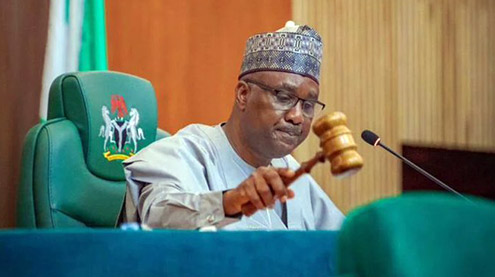Reps Cite Flaws In Presidential System, Propose Switch To Parliamentary Model In Bill For Second Reading

The House of Representatives on Thursday passed for second reading a bill seeking to return Nigeria to a parliamentary system of government.
The bill is among 31 constitutional amendment bills that passed second reading during plenary, presided over by Deputy Speaker Benjamin Okezie Kalu.
Titled “A Bill for an Act to Alter the Provisions of the Constitution of the Federal Republic of Nigeria, 1999, to Provide for the Office of the Prime Minister as Head of Government and the Office of President as Head of State and to Provide for a Framework for the Mode of Election to the Said Offices and for Related Matters (HB.1115),” the bill is sponsored by House Minority Leader Kingsley Chinda and 59 other lawmakers.
If passed, the bill will replace Nigeria’s current presidential system with a parliamentary model, where executive powers will rest with a Prime Minister elected by the legislature, while the President will serve as a ceremonial Head of State.
On February 14, 2024, 60 lawmakers introduced three bills proposing amendments to the 1999 Constitution to transition Nigeria to a parliamentary system by 2031. The proposed amendments include:
Speaking on behalf of the sponsors, Abdussamad Dasuki highlighted the inefficiencies of the presidential system, citing high governance costs, excessive executive powers, and a lack of accountability.
“Over the years, the flaws of the presidential system have become evident, despite multiple constitutional amendments. This system has led to high governance costs, reducing resources for critical sectors like infrastructure, education, and healthcare,” Dasuki said.
He argued that Nigeria’s First Republic, which operated under a parliamentary system, ensured better governance and accountability.
“The parliamentary system allowed elected representatives to exercise both legislative and executive powers, making them directly accountable. For six years, the system worked for Nigeria,” he added.
Meanwhile, the House is also considering an amendment to confer citizenship on foreigners married to Nigerian women.
The bill, sponsored by Akin Alabi (APC, Egbeda/Ona Ara, Oyo State), passed a second reading on Thursday.
The proposed amendment seeks to alter Section 26 of the 1999 Constitution, which governs citizenship by registration.
Currently, Section 26(1) allows a person to be registered as a Nigerian citizen if the President is satisfied that they:
However, Section 26(2)(a) restricts this provision to women married to Nigerian men, effectively excluding foreign men married to Nigerian women from acquiring citizenship through marriage.
The new bill seeks to address this gender imbalance, ensuring equal rights for Nigerian women in conferring citizenship to their foreign spouses.





